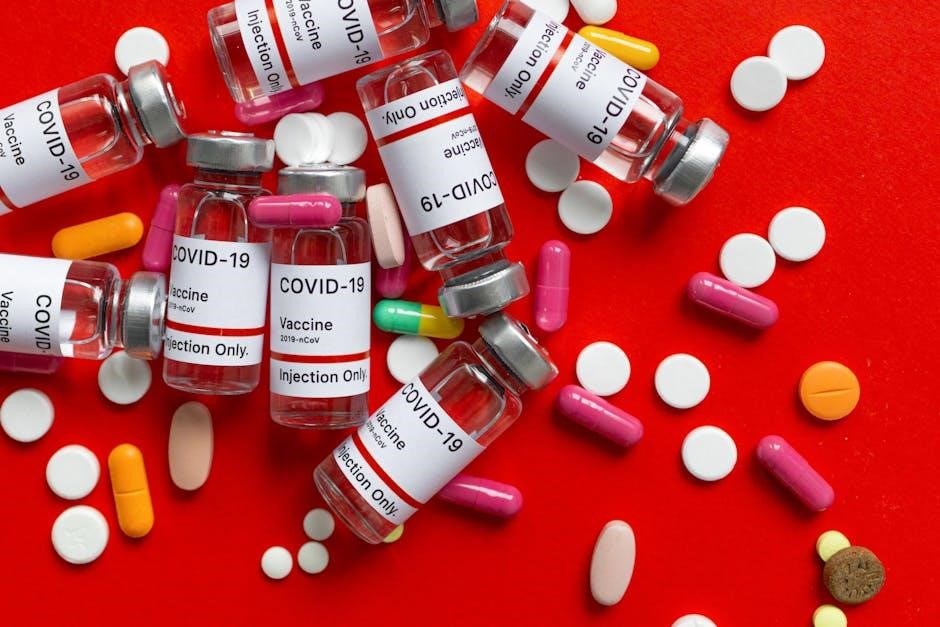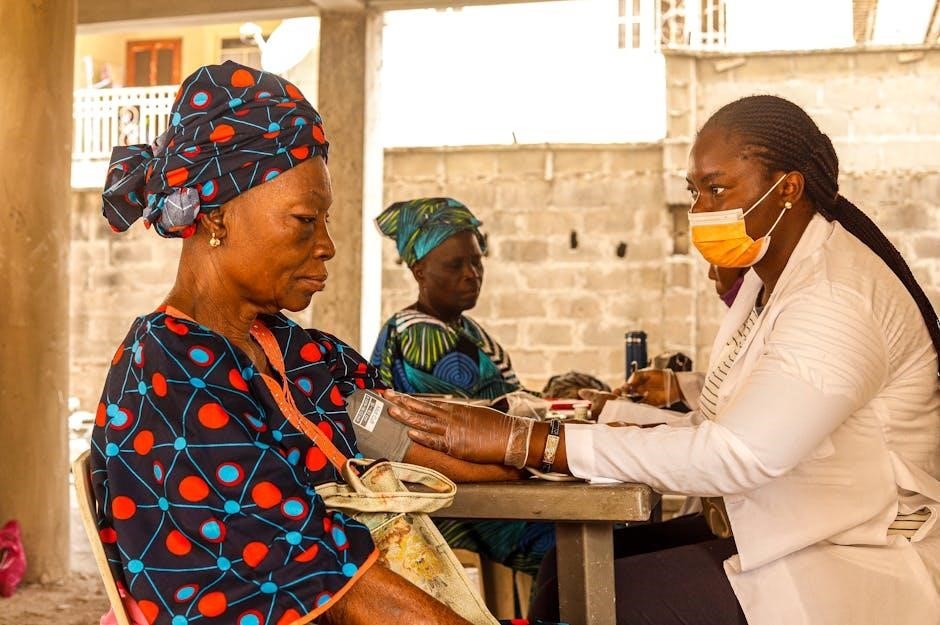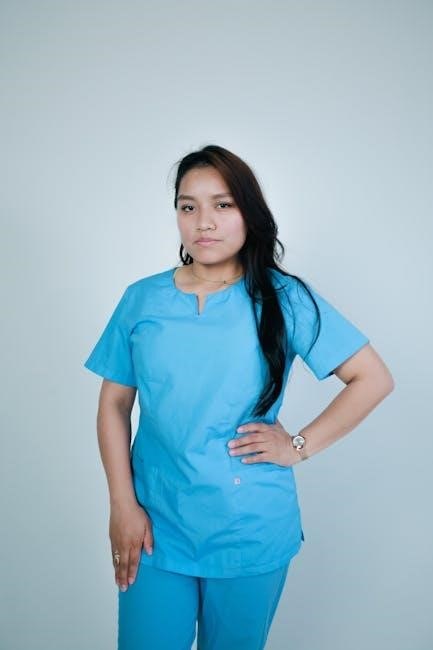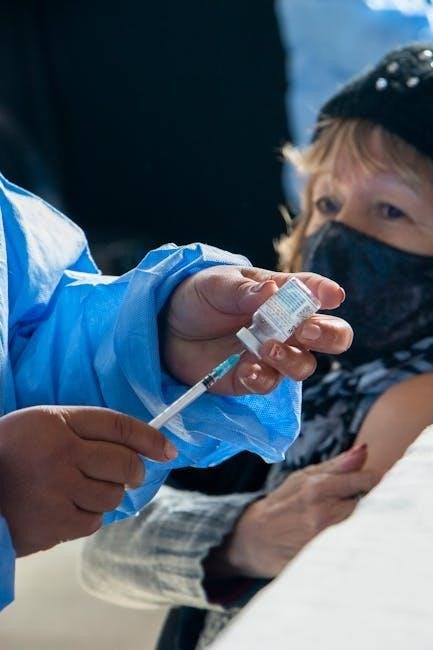
Accelerated nursing programs offer International Medical Graduates (IMGs) a tailored pathway to transition into the nursing profession, combining core medical knowledge with specialized nursing training.

Overview of the Program Structure
Accelerated nursing programs for International Medical Graduates (IMGs) are designed to build on their existing medical knowledge. These programs offer a condensed curriculum, typically lasting 12-18 months, focusing on core nursing competencies. They include both theoretical and clinical training, with courses tailored to meet the needs of IMGs transitioning into nursing. Many programs, such as those at Rutgers and Columbia University, provide flexible scheduling, including evening and online classes, to accommodate diverse student needs. Clinical placements are integral, ensuring hands-on experience in real healthcare settings.
Benefits for International Medical Graduates (IMGs)
Accelerated nursing programs for IMGs offer a bridge to transition their medical expertise into nursing, leveraging their prior knowledge. These programs are time-efficient, often completing in 12-18 months, and provide a focused curriculum tailored to their needs. They also open doors to advanced roles like Nurse Practitioners and offer opportunities for cultural adaptation. Many programs recognize prior education, reducing redundant coursework, and provide support systems to ease the transition into the U.S. healthcare system. This pathway is ideal for IMGs seeking to expand their career options in nursing.

Eligibility Criteria for Accelerated Nursing Programs
IMGs must hold a recognized medical degree, complete certification (e.g., ECFMG), meet English proficiency, and often require a minimum GPA, prerequisite courses, and valid visa status.
Education and Certification Requirements
IMGs must hold a recognized medical degree and meet specific certification criteria, such as ECFMG certification, to qualify for accelerated nursing programs. A bachelor’s degree or its equivalent is often required, along with prerequisite courses in sciences like anatomy and physiology. International transcripts must be evaluated for U.S. equivalency. Proficiency in English, demonstrated through TOEFL or IELTS scores, is also typically mandated. These requirements ensure a strong academic foundation for transitioning into nursing.
English Proficiency and Visa Requirements
International medical graduates must demonstrate strong English proficiency, typically through TOEFL or IELTS scores, to qualify for accelerated nursing programs. Visa requirements, such as obtaining an F-1 student visa, are also essential for enrollment. Applicants must provide necessary documentation, including proof of financial support and a valid passport. Institutions often guide IMGs through the visa process, ensuring compliance with immigration regulations. Meeting these requirements is crucial for admission and participation in clinical training within the program.

Notable Institutions Offering Accelerated Nursing Programs
Rutgers University, Columbia University, Monroe College, and Florida International University are prominent institutions offering accelerated nursing programs tailored for international medical graduates, providing specialized pathways to nursing careers.
Rutgers University School of Nursing
Rutgers University School of Nursing offers an accelerated program designed for International Medical Graduates (IMGs), providing a bridge to nursing careers. The Master’s Entry into Clinical Nursing (MECN) program is tailored for those with medical degrees, enabling them to transition into advanced nursing roles. With a focus on clinical excellence and hands-on training, Rutgers ensures IMGs gain the necessary skills to succeed in the nursing profession, supported by experienced faculty and diverse clinical placements.
Columbia University School of Nursing
Columbia University School of Nursing provides an accelerated program for International Medical Graduates (IMGs), offering a seamless transition into advanced nursing roles. The program is designed to leverage their medical expertise while acquiring nursing skills. With state-of-the-art facilities and renowned faculty, Columbia ensures comprehensive training. The curriculum includes clinical rotations in top healthcare settings, preparing IMGs for successful careers as nurse practitioners or in specialized nursing roles, with a strong emphasis on innovation and evidence-based practice.
Monroe College Accelerated Nursing Program
Monroe College offers an accelerated B.S. in Nursing tailored for International Medical Graduates (IMGs), enabling them to transition into the nursing field efficiently. The program is structured to build on their existing medical knowledge, with a focus on core nursing competencies. Evening and online classes provide flexibility, while clinical placements ensure hands-on experience. Completing in six semesters, this program equips IMGs with the skills needed to excel as registered nurses, addressing the growing demand for qualified professionals in healthcare.

Florida International University’s Program for FEPs
Florida International University offers an accelerated program designed for Foreign-Educated Physicians (FEPs), enabling them to transition into advanced nursing roles. The curriculum integrates their existing medical knowledge with specialized nursing training, leading to an MSN degree. Focused on clinical excellence, the program ensures hands-on experience and prepares graduates for roles like nurse practitioners. This innovative pathway supports FEPs in leveraging their expertise to address healthcare needs effectively, providing a seamless transition into the nursing profession.
Curriculum and Program Structure
Accelerated programs focus on core nursing courses, clinical training, and hands-on experience, typically completed in 12-18 months, preparing IMGs for advanced roles.
Core Nursing Courses and Focus Areas
Accelerated programs emphasize foundational nursing courses like Health Assessment, Pharmacology, and Nursing Research. Clinical focus areas include Medical-Surgical Nursing, Pediatrics, and Gerontology, blending theory with hands-on training; These courses are designed to build a strong nursing foundation, preparing IMGs for diverse healthcare settings and advanced practice roles. The curriculum integrates evidence-based practices, ensuring graduates are well-equipped to meet patient care demands effectively.
Program Length and Completion Time
Accelerated nursing programs for IMGs typically last 12-18 months, focusing on condensed, intensive learning. These programs are designed to build on prior medical knowledge, streamlining the transition to nursing. Evening and online classes allow flexibility, while clinical rotations provide hands-on experience. Most programs are structured to be completed in six semesters, ensuring a balance between theoretical and practical training. This timeframe enables graduates to quickly enter the workforce, leveraging their existing expertise to excel in nursing roles.
Clinical Placements and Hands-On Training
Clinical placements are a cornerstone of accelerated nursing programs, providing IMGs with hands-on experience in diverse healthcare settings. These placements, often embedded within the curriculum, allow students to apply theoretical knowledge in real-world scenarios. Programs typically offer a minimum of 640 clinical hours, exposing students to patient care, medical procedures, and interdisciplinary collaboration. This practical training enhances critical thinking, communication, and clinical skills, preparing graduates for the demands of nursing practice and fostering confidence in their abilities to deliver high-quality patient care.
Career Opportunities After Graduation
Graduates of accelerated nursing programs for IMGs can pursue roles as Nurse Practitioners, Registered Nurses, or specialists in primary or acute care, addressing healthcare workforce demands effectively.
Nurse Practitioner Specializations
IMGs in accelerated nursing programs can pursue various Nurse Practitioner (NP) specializations, including Family Nurse Practitioner (FNP), Pediatric Nurse Practitioner (PNP), and Gerontological Nurse Practitioner (GNP). These roles focus on primary and specialty care, enabling graduates to address diverse patient needs. Specializations like Psychiatric-Mental Health Nurse Practitioner (PMHNP) are also available, offering opportunities in mental health. The medical background of IMGs often enhances their ability to adapt to these advanced practice roles, making them valuable assets in healthcare systems.
Primary Care and Specialty Roles
International Medical Graduates (IMGs) transitioning into nursing often excel in primary care roles, leveraging their medical expertise to provide comprehensive patient care. Specialty roles in pediatrics, gerontology, and mental health are also common, allowing IMGs to address specific patient populations. These roles enable graduates to integrate their clinical knowledge with nursing skills, enhancing healthcare delivery. Additionally, IMGs often bring a global perspective to community health initiatives, enriching the nursing profession with diverse experiences.

Challenges Faced by IMGs in Nursing Programs
IMGs often face cultural and language barriers, along with the challenges of transitioning from medicine to nursing. These transitions require significant adaptation and resilience to succeed.
Cultural and Language Barriers
IMGs often encounter significant cultural and language barriers when transitioning into accelerated nursing programs. Adapting to a new educational and clinical environment can be challenging, especially for those unfamiliar with the local healthcare system. Language proficiency requirements, such as TOEFL or IELTS, may pose additional hurdles, impacting their ability to communicate effectively in both academic and clinical settings. These barriers can hinder their learning experience and clinical interactions, requiring dedicated effort to bridge the gap and succeed in the program.

Adapting to the Nursing Profession
Adapting to the nursing profession can be challenging for IMGs, as they transition from a medical to a nursing paradigm. While their medical background provides a strong foundation, nursing emphasizes hands-on patient care, communication, and interdisciplinary collaboration. IMGs must learn new clinical skills, such as patient assessments and nursing procedures, while navigating a different healthcare culture. Many accelerated programs offer support, such as mentorship and workshops, to help bridge this transition and ensure success in their new nursing careers.
Financial Aid and Scholarship Options
Accelerated nursing programs for IMGs often offer scholarships, grants, and loan options to help fund education, making nursing careers more accessible and affordable for international graduates.

Available Scholarships for IMGs
Several scholarships are available to support IMGs pursuing accelerated nursing programs. These include the Nursing Education Loan Forgiveness Program and the Diversity in Nursing Scholarship. Some institutions, like Florida International University, offer specific scholarships for FEPs. Additionally, organizations like the National Health Service Corps provide financial aid to nursing students committed to underserved communities. These opportunities help reduce financial burdens and make nursing education more accessible for international graduates.
Loan and Grant Opportunities
IMGs in accelerated nursing programs can access federal loans, such as the Nursing Student Loan Program, and grants like the Pell Grant. Some institutions offer grants specifically for international students. Additionally, organizations like the Health Resources and Services Administration (HRSA) provide funding opportunities for nursing education. These financial aid options help IMGs cover tuition and living expenses, making their transition into nursing more affordable and sustainable. External foundations also offer grants to support diversity in nursing education.

Success Stories and Testimonials
Many IMGs have successfully transitioned into nursing through accelerated programs, sharing inspiring stories of career transformation. Graduates from institutions like Rutgers and Columbia highlight the programs’ impact, transitioning into roles like Nurse Practitioners and Registered Nurses. Their journeys demonstrate resilience and adaptability, proving these programs are life-changing opportunities for international medical graduates.
Case Studies of Successful Graduates
Dr. Maria Gomez, an IMG from Spain, completed Rutgers’ accelerated program and transitioned into a successful career as a Registered Nurse. Similarly, Dr. Raj Patel, an Indian medical graduate, excelled in Columbia University’s program and became a Nurse Practitioner; Their journeys highlight how these programs bridge medical backgrounds with nursing expertise, enabling graduates to thrive in diverse healthcare settings. Such stories underscore the transformative potential of accelerated nursing programs for IMGs seeking new opportunities in the U.S. healthcare system.
Alumni Feedback and Program Reviews
Alumni from accelerated nursing programs consistently praise the structured curriculum and supportive faculty. Many highlight the seamless transition from medicine to nursing, with hands-on clinical training proving invaluable. Graduates emphasize the programs’ flexibility and career advancement opportunities. Feedback often includes appreciation for the focus on cultural competence and patient-centered care. Overall, alumni reviews reflect high satisfaction, with many successfully transitioning into fulfilling roles as nurse practitioners and RNs, crediting the programs for their professional growth and integration into the U.S. healthcare system.
Resources for Prospective Applicants
Official websites offer downloadable PDF guides and application materials, while online communities provide support networks for navigating accelerated nursing programs tailored for IMGs.
PDF Guides and Application Materials
Prospective applicants can access comprehensive PDF guides detailing program structures, admission requirements, and application processes. These resources, available on official university websites, provide clear instructions and checklists to ensure a smooth application experience. Additionally, downloadable materials often include sample resumes, personal statement tips, and prerequisite course lists. Universities like Rutgers and Columbia offer detailed brochures tailored for International Medical Graduates, simplifying the transition into accelerated nursing programs.
Online Communities and Support Networks
Online forums and social media groups provide valuable support for International Medical Graduates pursuing accelerated nursing programs. Platforms like Facebook groups and LinkedIn communities connect applicants, offering advice on applications, coursework, and personal experiences. Universities often host webinars or Q&A sessions to guide applicants. Additionally, dedicated forums for IMGs share tips on navigating cultural and language challenges. These networks foster collaboration and emotional support, helping students thrive during their transition into nursing careers. They also provide access to program-specific resources and alumni mentorship opportunities.